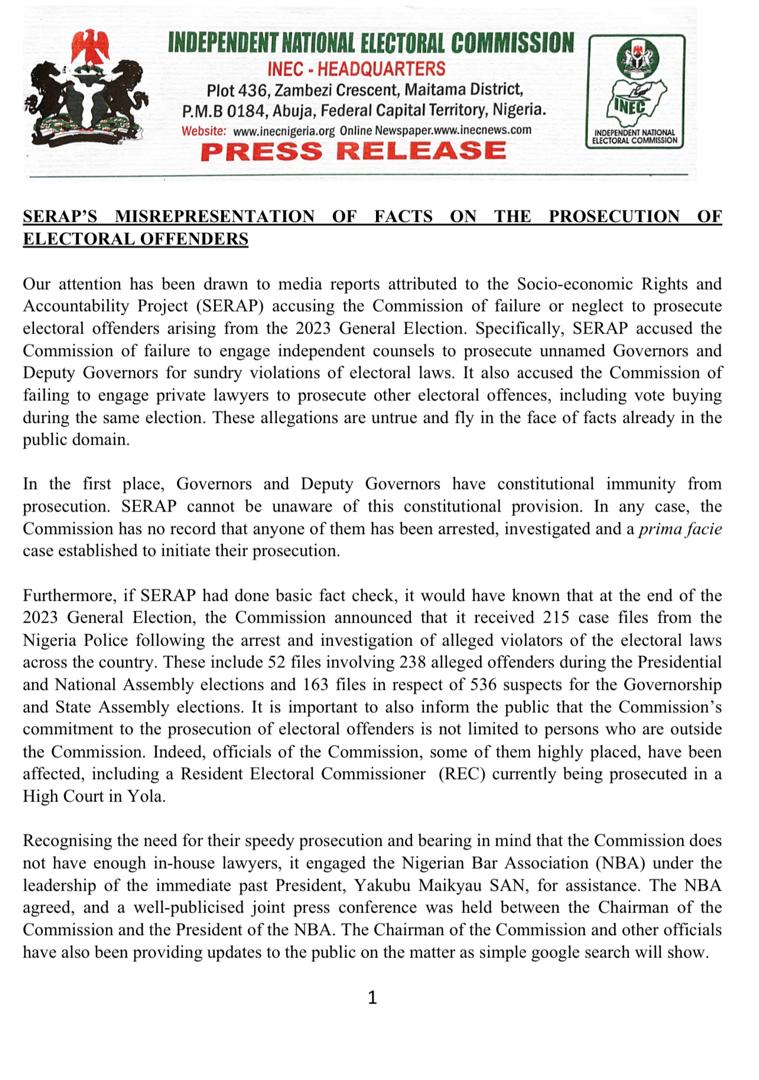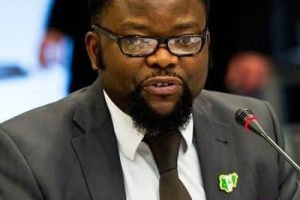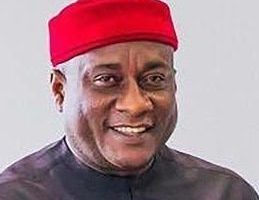The Independent National Electoral Commission (INEC) has denied accusations by the Socio-Economic Rights and Accountability Project (SERAP) that it failed to investigate and prosecute electoral offenders from the 2023 General Election. SERAP specifically claimed INEC neglected to engage independent counsel to prosecute governors and deputy governors for electoral law violations.
INEC’s Response
INEC asserts that governors and deputy governors have constitutional immunity from prosecution. The commission also states it has no records of arrests, investigations, or established cases against these officials.
Moreover, INEC highlights its efforts in prosecuting electoral offenders:
- Received 215 case files from the Nigeria Police, including 52 files involving 238 alleged offenders from the Presidential and National Assembly elections, and 163 files involving 536 suspects from the Governorship and State Assembly elections.
- Engaged the Nigerian Bar Association (NBA) to assist in prosecution, with a joint press conference announcing the partnership.
- Successfully prosecuted officials, including a Resident Electoral Commissioner (REC) in Yola.
Prosecution Efforts
INEC has worked with anti-graft agencies, the Economic and Financial Crimes Commission (EFCC) and the Independent Corrupt Practices Commission (ICPC), to prosecute vote buyers. A joint prosecution team of 18 lawyers has secured convictions in Lagos, Gombe, and Kwara States.
Challenges in Prosecution
Electoral offences are not time-bound, unlike pre-election and post-election cases. Prosecution occurs in the jurisdiction where the offence was committed, and cases can take several years.
INEC advocates for electoral reform to make electoral offences time-bound, ensuring speedy prosecution.
The commission assures Nigerians it will continue to discharge its responsibilities, denying contempt of court allegations. INEC urges SERAP to verify facts before making public accusations.




Add Comment